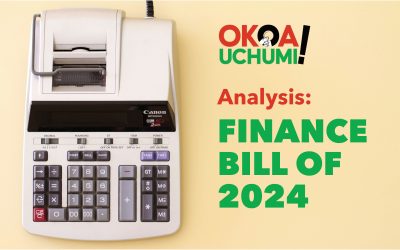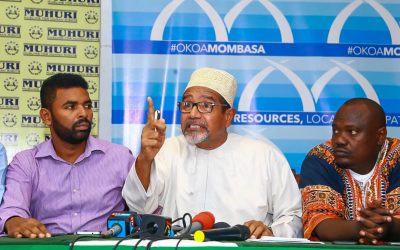Okoa Mombasa has written to Safaricom, Ltd., requesting that the telecom company withdraw the use of its MPESA services at the Likoni Ferry until Kenya Ferry Services (KFS) allows other forms of payment.
KFS introduced a cashless system in October 2020 requiring all tolls to be paid exclusively via MPESA, Safaricom’s mobile money transfer service. Cash and payments by other electronic means are no longer permitted, meaning users who do not have a mobile phone with a Safaricom SIM card cannot ride the ferry.
In its letter to Safaricom dated April 20, 2021, Okoa Mombasa noted that KFS’s decision “was taken without public participation and lacked transparency.” The deal – which effectively creates a monopoly for Safaricom – was reached without broad public consultation, and the ferry operator has failed to reveal details of the bidding process that led to Safaricom being selected as the sole processor of payments.
“We believe that a public participation process was Constitutionally mandated in this situation, given KFS’s status as a parastatal entity,” the letter states.
Okoa Mombasa also believes that the KFS-Safaricom deal infringes on Kenyans’ right to access information, equality, consumer choice, and freedom from discrimination. The situation is the latest in a string of cases where government entities have made decisions impacting the people of Coast without actually consulting the people of Coast.
“Surely, Safaricom, a corporation that claims to run responsible and ethical business would not want to be contributing to discrimination simply in order to increase its bottom line,” the letter continues. “It would appear to go against your stated values of ‘ethics, diversity and inclusion and environmental responsibility to promote empowerment initiatives’.”
Safaricom has yet to respond to the letter.
Okoa Mombasa first called on KFS to end the MPESA monopoly in March 2021. Coalition member Muslims for Human Rights (MUHURI) subsequently filed a lawsuit in April seeking an order breaking the monopoly and mandating a public participation process. The next proceedings in that case are set for May 13.
According to research by MUHURI, Safaricom earns between Sh8 and Sh100 per toll, depending on the size and weight of the vehicle crossing the Likoni channel. Around 6,000 motorists use the channel daily, plus numerous more motorbikes and handcart operators.
The 500-metre Likoni channel is the preferred route between Mombasa island and the mainland side of Likoni, a mostly residential area.


